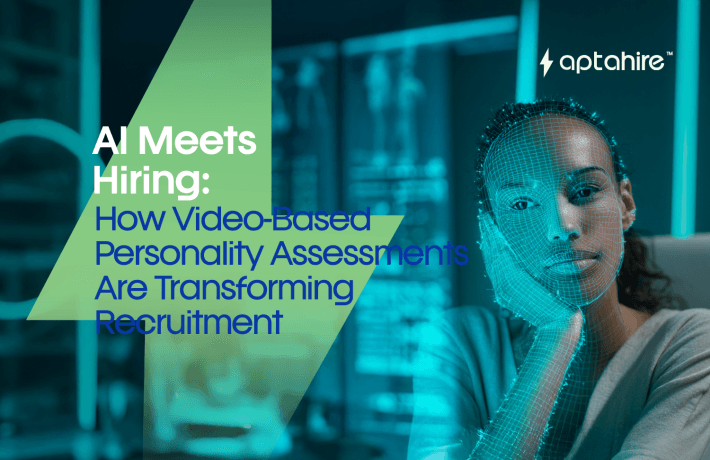Recruitment Automation: The Future of Candidate Screening

Looking at the dynamic job market conditions, talent acquisition experts are facing regular challenges for widening skills gaps and huge competition for finding the right talent. Most talent acquisition managers are struggling. Recruitment might look like an easy process on paper, but practically, there is a lot of hassle with screening CVs, rounds of interviews, and follow-ups. If the process is not going well, it can result in huge losses and lead to employee turnover.
A study conducted by Harvard Business Review states that more than 80% of employees leave the organization, and wrong hiring can be a reason, while 45% of respondents give the nod to the absence of a standard process. Depending on the manual process can limit the networking and create a diverse pool of qualified candidates. With the advent of recruitment automation to support smart hiring processes through automation, sourcing candidates, scheduling interviews, and skills assessment. It can leverage advanced capabilities using RPA, ML, and AI technology to connect workflows while saving time and productivity.
So, how can automation and AI-based hiring redevelop how recruitment services get delivered? Let’s find out the answer with this detailed blog.
How Can Recruitment Automation Change the Candidate Screening Process?
Recruitment automation can eliminate hiring managers from the hassle of simplified complex processes for screening CVs, filling openings, and scheduling interviews. Progressing tech-like automation can support advanced capabilities in handling multiple tasks of recruiters at once. Automated programs can quickly scan thousands of resumes in a snap of a minute. Considering the risk of a manual recruitment process, it can reduce the aspect of unconscious bias and ensure transparency for screening.
Overall, the average cost per hire can range to $4,000 and will take around 36 days to complete. Still, automation can deliver remarkable speed and accuracy, resulting in less than $200 within a few minutes. Big giants, namely LinkedIn, Microsoft, Google, and Amazon, are actively implementing AI-based resume screening to encourage skill assessment and candidate sourcing.
Some of the remarkable changes that automation brings to the recruitment process are:
- Resume Parsing
- Keyword matching from CVs
- Pre-defined filters
- Automated Skills tests
- Gamified Assessment
- AI-Driven prompt feedback
Automating The Recruitment Process: How Can You Do It?
Apart from candidate screening, hiring managers are investing in these tools as software-as-a-service that supports automation to save time and resources for redundant tasks. Let’s understand how this recruitment automation can help transform the hiring process.
Tracking System for Applicants
It is one of the recruitment software solutions that can create a centralized database by updating information, job details, skills, experiences, and interview notes. Using the system, you can add filters to shortlist resumes by considering predefined criteria that also help with job posting integration on third-party platforms.
Automated Candidate Screening
Juggling with the screening of resumes and operating hiring software can simplify complexities. AI algorithms can support extracting data insights and automatically reject unsuitable applications based on pre-set criteria. AI candidate screening delivers the best result with accuracy.
Transcriptions
Automation tools can also update the process of transcribing ideas that support screening questions for job applicants, prompt responses, FAQs, and rejecting candidates. Connect with Aptahire to help you share the most accurate and automated transcription and prepare interview-related questions.
Skills Assessment
Online tests and assessments support filtering the best candidates, automation can schedule coding challenges, programming language, target skills tests, language quizzes, critical thinking, and problem-solving. Integrating these challenges can help to share instant scores and feedback to support screening interview process.
Compliances and Verification
Candidates’ profiles can be examined for background checks by navigating search details for education, employment history, and criminal records. Implementing automation methods can help identify discrepancies and issues. It regulates the risk assessment, audit trails, and automated compliances for recruitment optimizations.
Chatbots
AI-driven chatbots can help candidate engagement by answering the basic queries for job and company-related questions, scheduling initial conversations, and more. With the ease of 24-hour support, businesses can integrate the features into their website and apps. It helps to track valuable insights to scale up the recruitment process.
One-Way Interview
Recruitment automation has taken one step away from traditional screening calls but streamlined the process for one-way recorded interviews. Using algorithms and prompts, recruiters can develop online interviews where candidates can answer preset questions with video conferencing following the initial-level screening. It can allow for real-time call coordination, providing flexible schedules for interviews.
Automatic Scheduling
If you are recruiting at a high scale for multiple positions, it becomes difficult to navigate between manager and candidate timing and work allowances. AI and ML simulation can develop the system automatically, provide time slots, and help candidates to provide the right inputs. Count on Aptahire to provide smart solutions and integrate automated features for easy scheduling.
Check out this blog to learn more about Automated Interview Scheduling with AI Technology!
Reporting and Analytics
Imagine you are getting 1000 candidate details for one specific job posting. It can create chaos for handling too much information and details. An automated system can simulate recruitment metrics like time-to-fill and cost-per-hire that support organizations in making informed decisions. Likewise, Aptahire can help you to provide detailed candidate reports highlighting key insights, strengths, and weaknesses.
So, these are the best ways to show how automation can transform the recruitment process to help businesses save their time-to-hire and investment. AI-driven predictive hiring software can enhance the process of recruitment and selecting the right-fit candidate. A platform like Aptahire is your reliable partner for HR solutions for automated interviews and intelligent candidate assessments.
Challenges in Adopting Recruitment Automation
While organizations and enterprises are adopting AI-based hiring rapidly, there are specific challenges following their footsteps. From scalability and security to lack of expertise, major shortcomings intervene in the smooth adoption of recruitment automation. Listing few of them to address these challenges and how to overcome them:
Technical Challenges
One of the core issues that many organizations face is not being technology-ready for the automated hiring process. Using outdated technology and the absence of APIs can cause compatibility issues for recruitment tools. Automated systems might be manipulated with misinformation that can create unethical hiring practices. Also, the HR team might not be trained properly and lack technical expertise in recruitment tools.
Solutions: Create a blueprint for technology integration and ensure flexible migration that supports switching providers and reduces dependencies risk.
Ethical Challenges
HR Managers are concerned about compliance issues and data privacy to rely on automation and recruitment process software. It can create challenges in terms of bias and misuse of technology for decision-making. It would be difficult to deal with diverse data from different backgrounds, which might impact the evaluation process.
Solutions: Deploying regular audits and validating algorithms can get the maximum out of automated decisions.
Reluctant to Changes
In most workplaces, HR teams are not entirely dependent on the technology they still rely on manual processes. Not every employee can embrace changes with fearing roles swapped with automation. However, companies are bound to adopt automation for talent management and recruitment for development.
Solution: Develop online live demos and programs to demonstrate the practical application of automation to focus on strategic initiatives.
Implementation & Integration Cost
There are multiple factors, such as the number of users, features, and pricing models, for recruitment process software automated implementation that might include high costs. It comprises integration, hardware and infrastructure, and training and implementation costs with additional charges for software maintenance, updates, and technical support.
Solutions: HR leaders can prefer phase implementation for automation with specific tools and explore options for flexible pricing models and discounts.
Final Thoughts!
Heading to the era of tech innovation and still sticking to traditionally manual processes for recruitment? It doesn’t make sense! Recruitment automation relies on core technologies that attract high talent pools, schedule interviews, and expedite AI-based hiring to identify the perfect candidates. Scale your job hunting with technical support to deploy high-quality recruiting solutions with less investment.
Aptahire, a reliable platform for AI-powered screening, interviews, and dashboards, finds all the advanced tools and solutions in one place. Transform your smart hiring dream!



